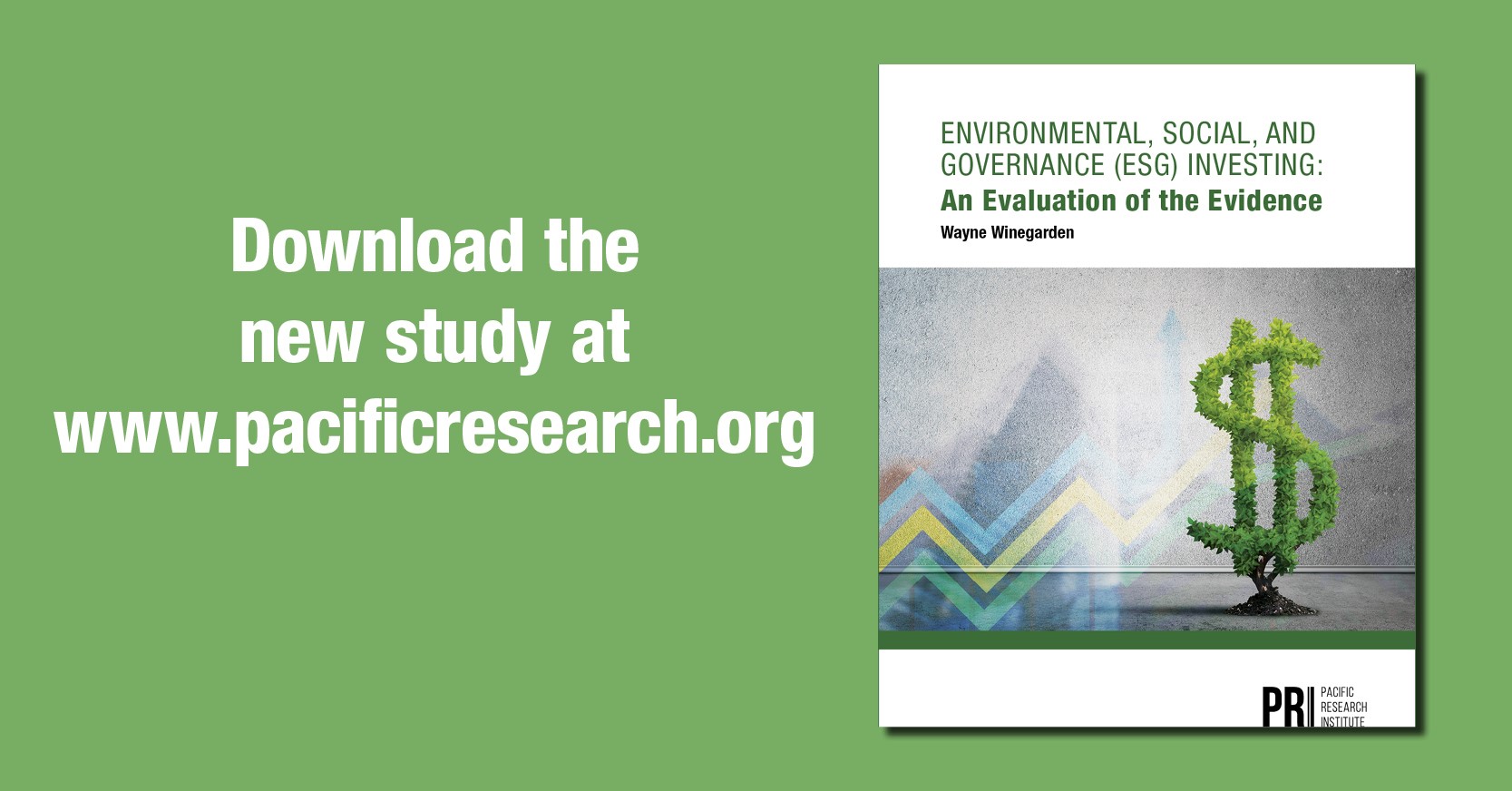“Doing well and doing good,” is an oft-used tagline by ESG investing (Environmental, Social, Governance) advocates and industry publicists. But we’ve often wondered what would happen if investors had to choose between the two – a portfolio of stocks that outperform or one that leaves out stocks social and environmental activists love to hate.
Now there’s a new survey that sheds some light on this question. A recent Echelon Insights/Daily Wire poll of 1,000 investors showed that 64 percent of respondents believe that “individual investors whose savings are being invested” should ultimately decide whether retirement funds and pension plans are allocated according to ESG criteria. Only 20 percent believe that “Wall Street asset managers” should make that call.
An even higher margin of respondents — 66 percent versus 20 percent — supported the right of individual investors to opt out of ESG-style investments. Investors – by a 56 percent to 28 percent margin — also supported states’ decisions to pull pension funds from investments not focused on strictly performance.
The fact is there’s little evidence that an ESG portfolio can best a plain-vanilla S&P 500 Index Fund.
In 2019, Wayne Winegarden, PRI’s Senior Fellow in Business & Economics, ran the numbers and found that of the 18 ESG funds examined that had a full 10-year track record at the time, a $10,000 ESG portfolio (equally divided across the funds including the impact from management fees) would be 43.9 percent smaller after 10-years compared to a $10,000 investment into an S&P 500 index fund. And while Winegarden hasn’t ruan the numbers lately, oil & gas stocks have made a comeback and tech stocks have been tumbling, so it’s not likely that ESG funds have been able to outperform the broader market.
But if ESG money managers should worry, “woke” companies should probably worry more. The poll also showed that Americans want companies they invest in to seek profits instead of promoting political agendas outside of companies’ missions. While 29 percent of respondents agreed it is a “good thing” for companies to leverage their financial power for political or social means, 58 percent — double — said it is a “bad thing.”
Vivek Ramaswamy, author of Woke, Inc., in commenting on the survey said, “Depoliticizing corporate America should not be a left wing or right wing issue. It has nothing to do with partisan politics. An apolitical private sector is a requirement for an otherwise divided country to be able to come together. It’s a sort of sanctuary away from politics. Once we lose that, it’s the beginning of the end of the American experiment.”
Rowena Itchon is senior vice president of the Pacific Research Institute.


